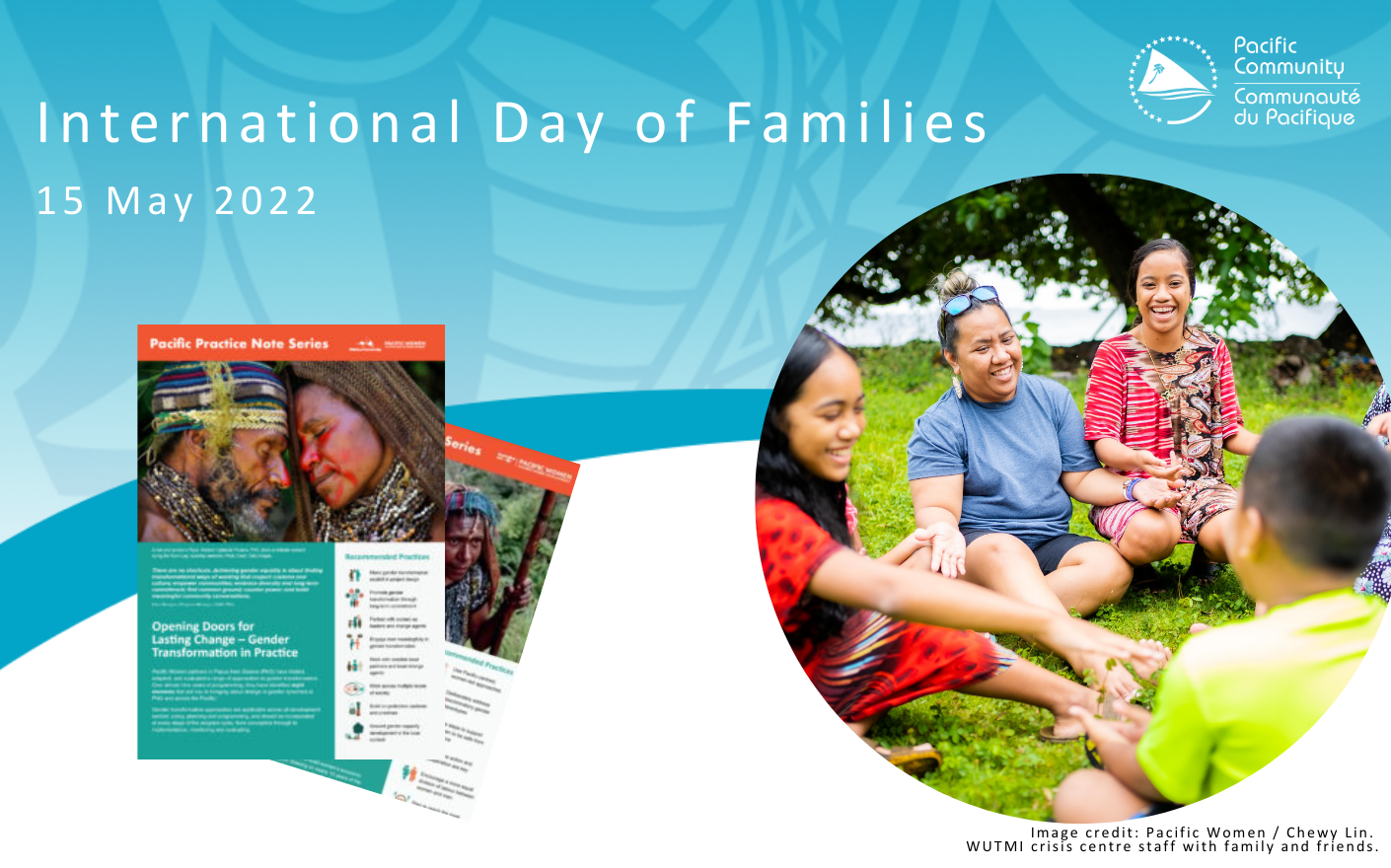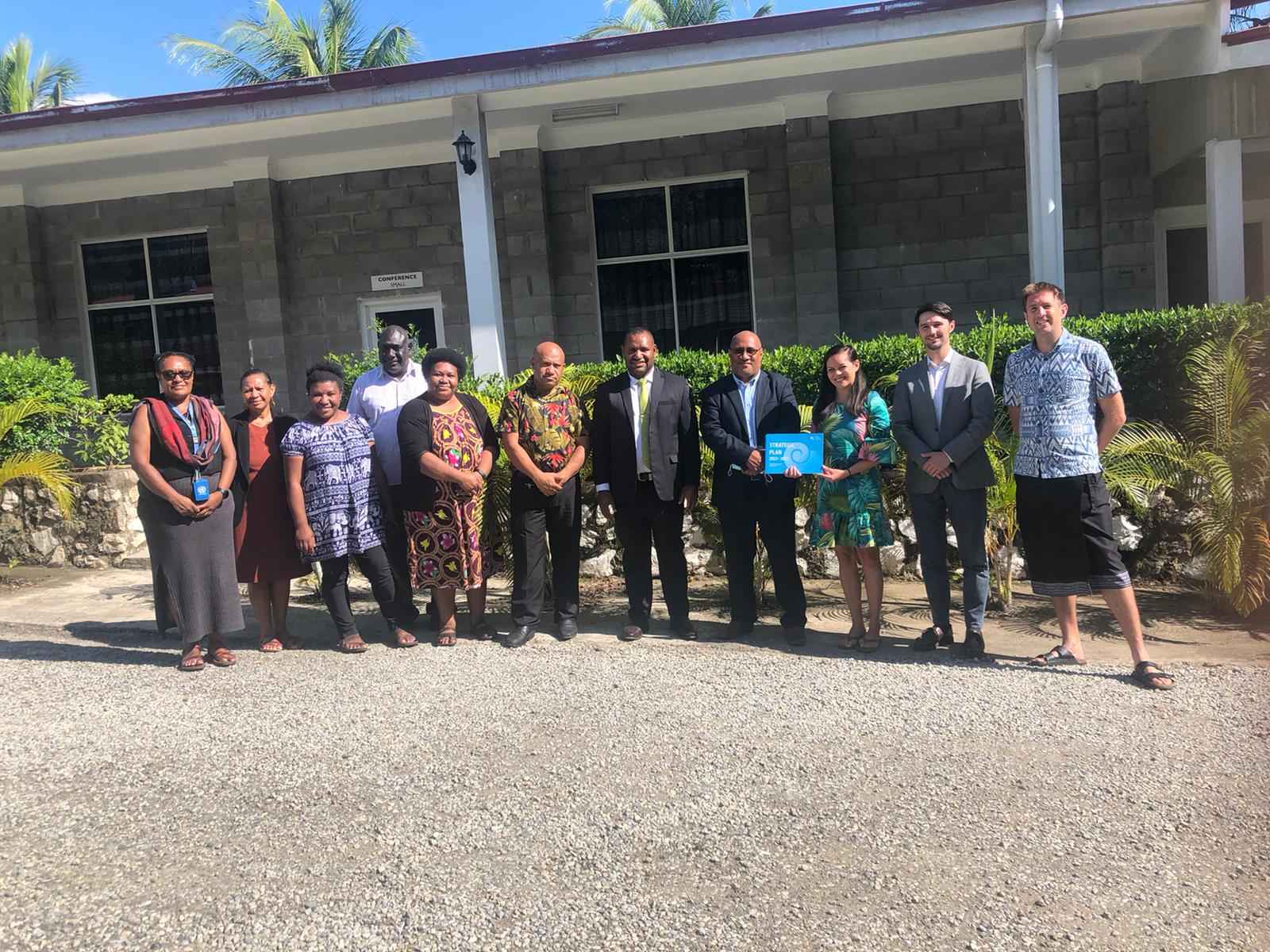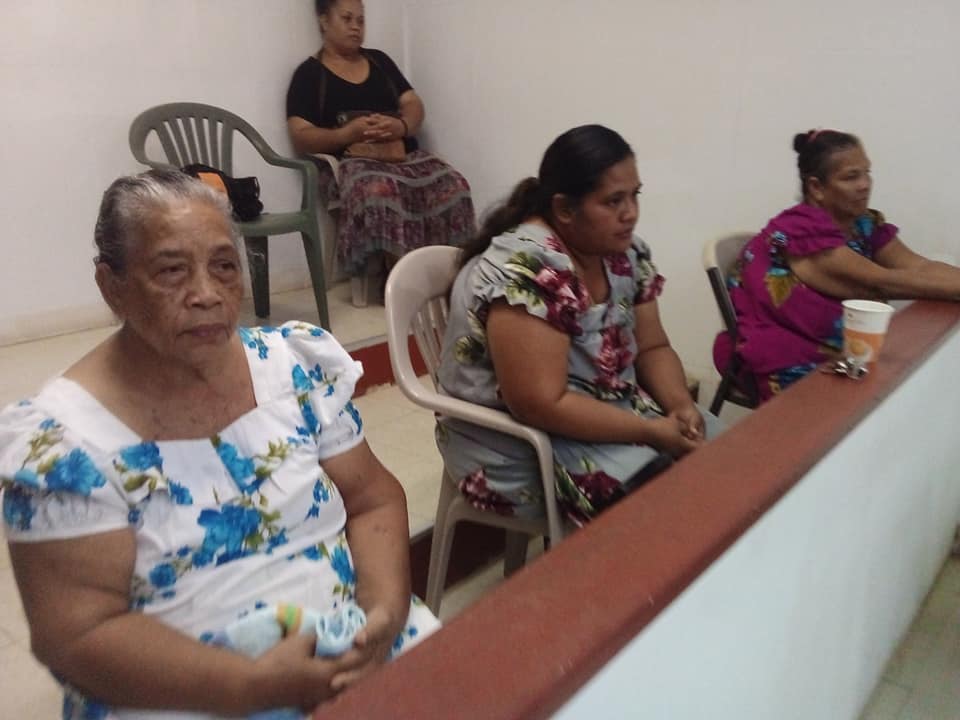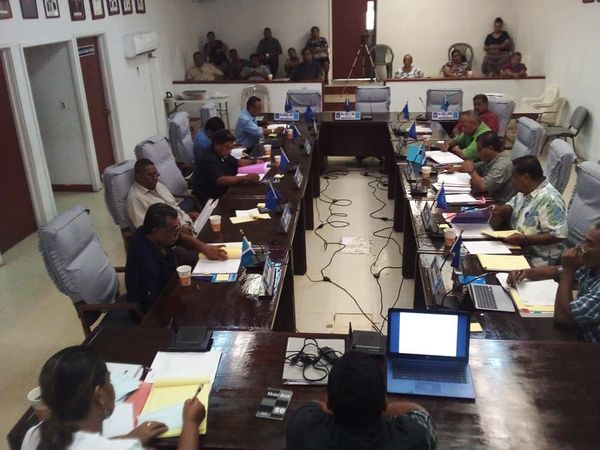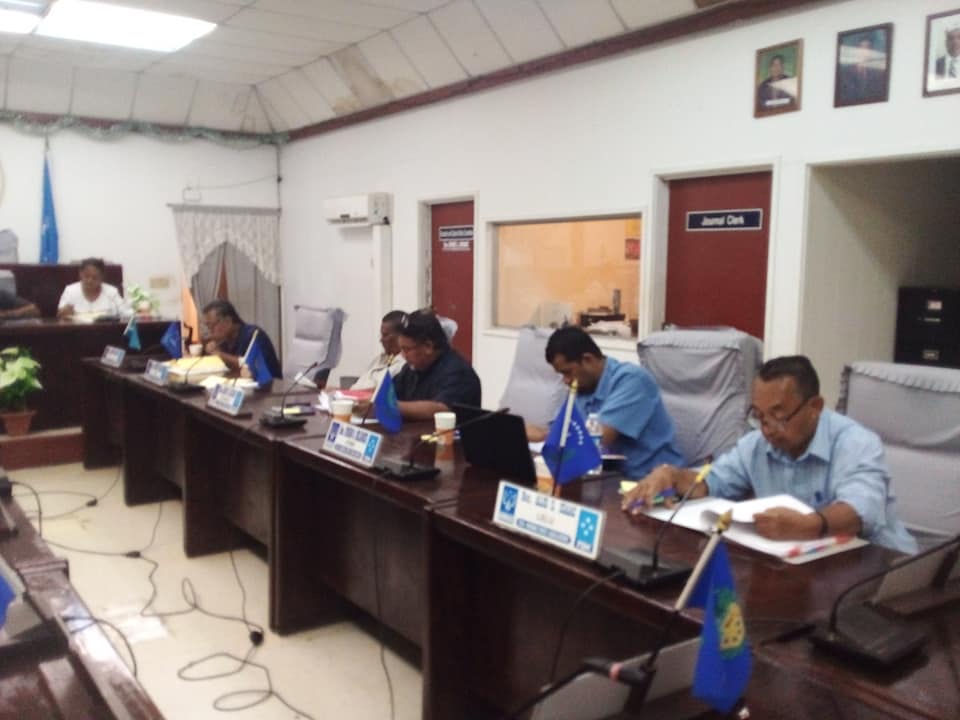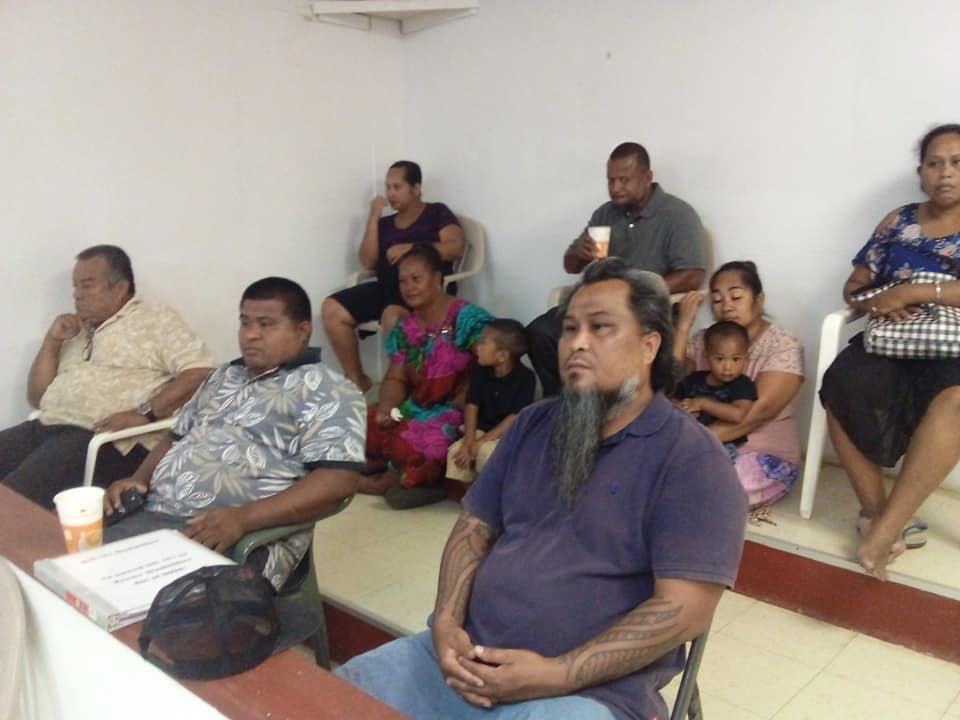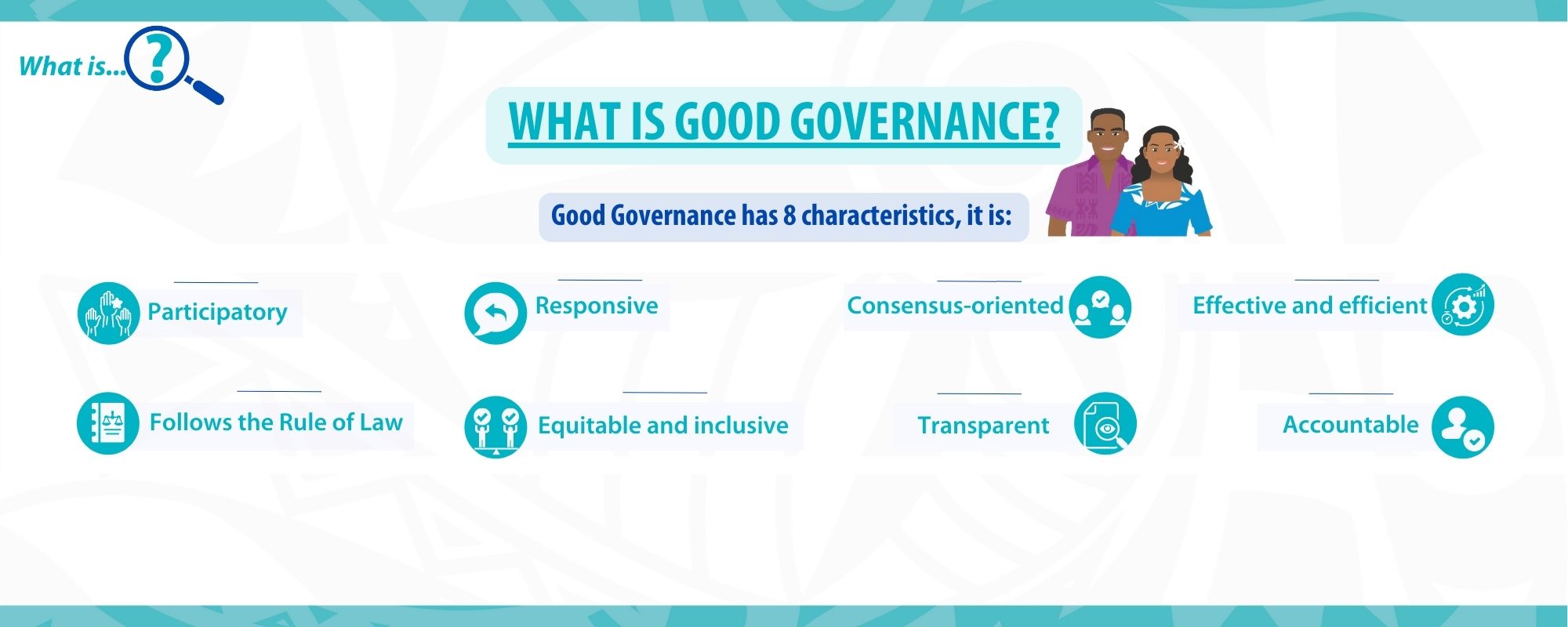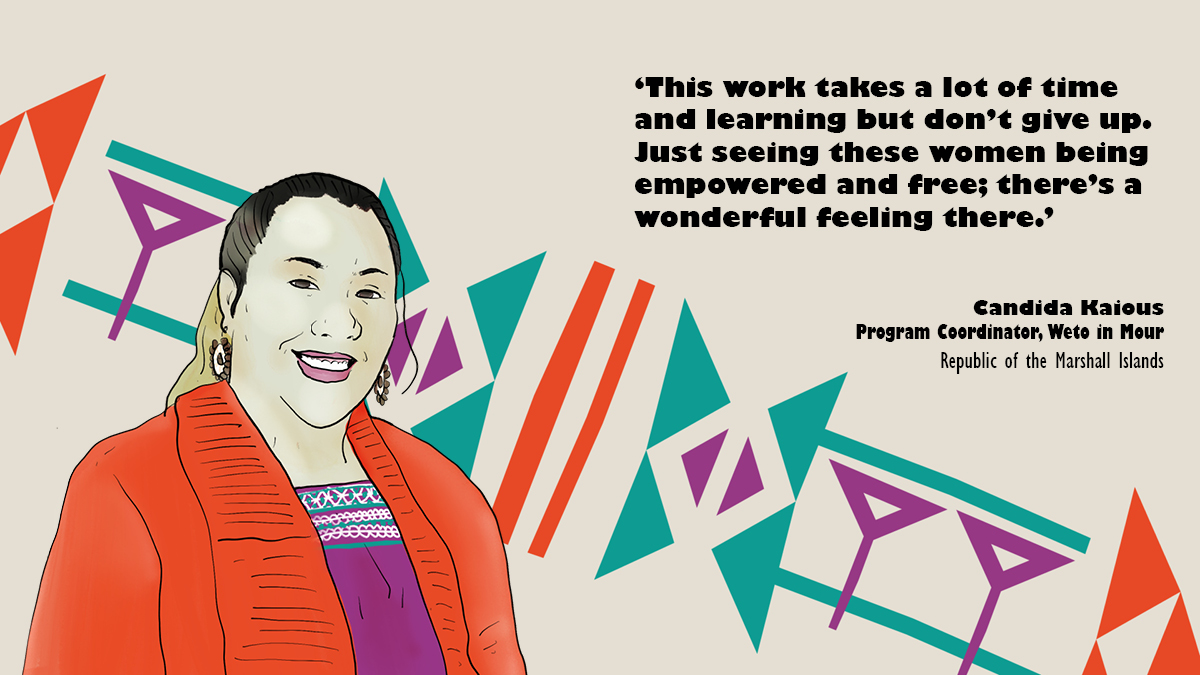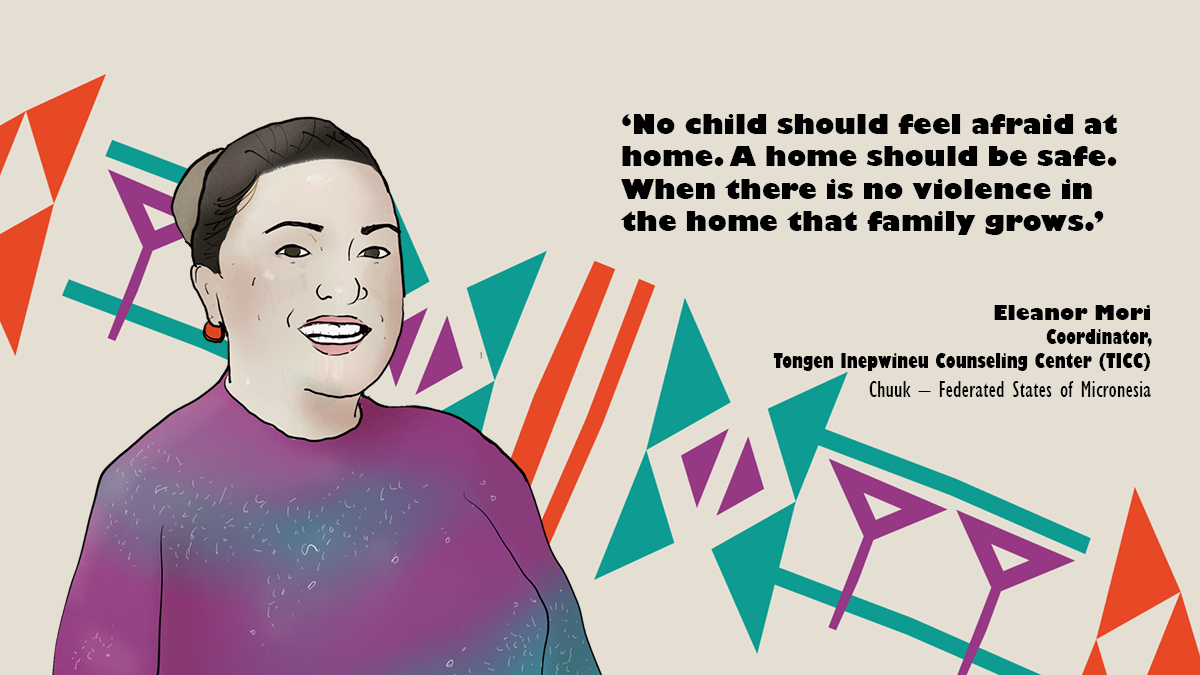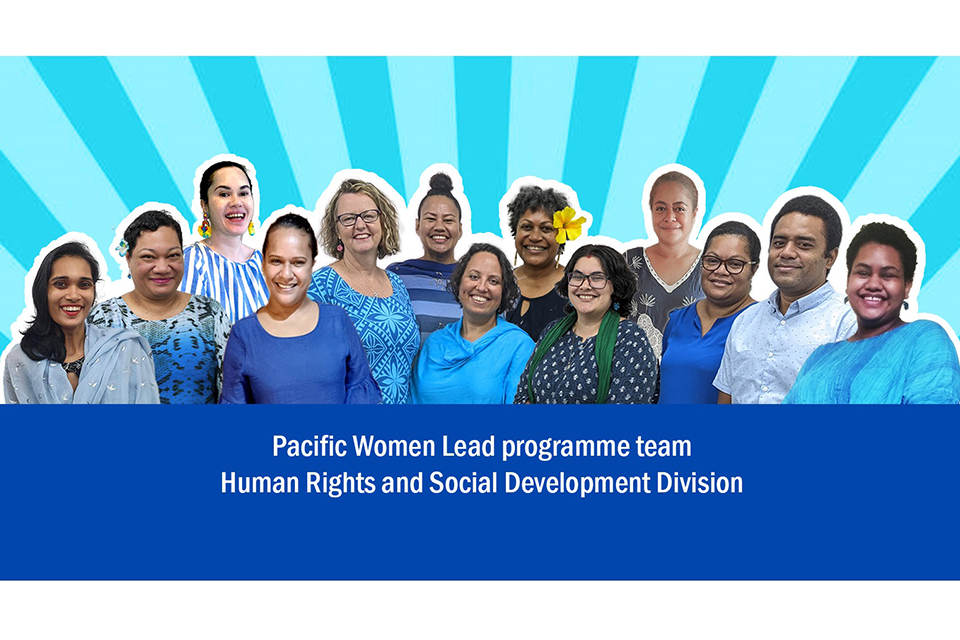Kosrae State Legislature enacts Bill 191 – Protecting persons with disabilities
For many nights, sleep eluded Isao Mike from Kosrae State in the Federated States of Micronesia. Racked with great concern for his child living with a disability, Mike constantly worried about his son’s future, particularly in the event he and his wife were no longer living or able to care for him.
He would frequently say to himself, “As a parent, I have no peace. If something ever happens to me or my wife, who will take care of my son? Who will make sure he is cared for?”
But on the back of this worry and countless nights of elusive sleep was born a determination to take action. Action that would secure his son’s future, and that of other children and people living with disability in Kosrae.
When the Kosrae Disability Act (Bill 191) was passed on 3 December 2021 by the State Legislature of Kosrae, it was victory for Mike and many parents in Kosrae raising and caring for children with disabilities. It was a win for Kosrae.
Bill 191 is a significant step forward for FSM and the Kosrae State Legislature. It sends a clear signal about the country’s determination to follow the Convention on the Rights of Persons with Disability (CRPD) which the 19th Congress of the FSM ratified on 7 October 2016.
International human rights conventions are an effective way of holding states accountable and serves as a guide for national legislation to safeguard marginalised groups in our societies. While many countries in the Pacific have ratified CRPD and, over time, have passed laws to comply with international human rights treaties, others such as FSM have only recently taken positive legislative action to protect and support persons with disabilities.
For Mike, the urgency to act came in the wake of an attack on his son.
“For me ultimately, the motivation to do something, to have a law in place to protect my son and others living with disabilities, came about when my son was hit on the head by someone, and despite the court hearing, the perpetrator only got two months outside of jail,” he said.
“This was an eye opener for me, as a parent. I realised that simply educating people to respect persons with disabilities was not enough. We needed better protective measures for people with disabilities.”
Despite the existing resolution supporting the CRPD ratification, Mike said it did not come with a law for Kosrae State, and people living with disabilities continued to experience high rates of sexual and physical violence, inaccessible health and social services and inequality.
“Two years ago, we revisited our legislature and realised that we don't have a specific law that provides for persons with disabilities. While the government has some laws in place which protect us all, nothing specific was available to support and protect persons with disabilities,” Mike said.
As part of the Kosrae Special Parent Network (KSPN), a non-governmental organisation (NGO) under the Kosrae Department of Education, Mike and other parents drafted a Bill titled the Kosrae Disability Act. They submitted it to the 12th Kosrae State Legislature and lobbied the State through awareness and advocacy to pass the Bill. These were key steps to ensuring the enactment of Bill 191.
The Pacific People Advancing Change (PPAC) programme of the Pacific Community’s (SPC) Human Rights and Social Development (HRSD) division and aims to build advocacy capacity among Pacific Civil Society Organisations (CSOs) engaged with human rights issues, while also advancing those issues by supporting specific campaigns.
KSPN is one of the PPAC grantees supported by the United States Agency for International Development (USAID) as part of the “Promoting Just, Engaged, Civic-minded and Transparent (PROJECT) Governance”. Through the PROJECT Governance grant program, KSPN managed to advocate, raise-awareness and lobby the State to pass Bill 191. This speaks volumes of the initial success of PROJECT Governance and its support to the Pacific. PROJECT Governance is a USD 19.8 million five-year partnership between SPC, the Blue Pacific Alliance partners (International Federation of Electoral Systems, East-West Centre and Care USA) and the United States Government through USAID.
Mike said Bill 191 promotes equal opportunities and respect for all persons with disabilities by ensuring accessible reserved parking spaces, building facilities, inclusive education, employment and social services in both public and privately-owned or controlled areas accessible to the public.
Berla Nena, a parent raising two children living with disabilities in Kosrae, said the passing of the Bill was a step in the right direction. She and her family moved to Kosrae from the United States.
“In the US, all services were provided to my children from birth. But when we moved to Kosrae, things became difficult for us because there were just not enough services for persons with disabilities here,” she said. “With this law in place, this means they have a better future.”
Among the significant change to the Kosrae Disability Act was that now the State of Kosrae was under obligation to provide services to persons with disabilities of all ages.
Power of Legislation in improving lives of vulnerable groups
Too often, we overlook the power or value of legislation in maintaining order in our countries and communities. What would life be like if we did not have existing rules and laws maintaining peace in our societies?
Be it related to health, social security, housing, education, environment, commercial/trade/business issues or protection, some of us may have taken for granted laws and legislations that directly impact our daily way of life. Legislation provides government a legal mandate to utilise available resources to offer services that will promote, protect and fulfil the constitutional rights of its citizens.
And there is no exception when it comes to people living with disabilities who equally deserve laws that protect their interests and rights, including fundamental human rights like freedom, respect, equality and dignity. Like every citizen, people living with disabilities also have the right to live to their full potential and to live free from abuse or neglect.
Speaker of Kosrae State Legislature, Honourable Tulensa Palik, believes the passing of Bill 191 was long overdue.
“I believe having laws in place, specifically for persons with disabilities will definitely enhance their ability to participate in community life and society as a whole and thus improve the quality of their life,” Hon. Palik said.
“I wanted to highlight that this is something we have to do. When our country ratified the CRPD then it became incumbent upon us to make an appropriate legislation that complements the convention,” he said.
He said the government recognised that there are a lot of persons living with disabilities in the community and in Kosrae State alone, there were approximately 600 people living with some form of disability. “We cannot just leave them behind,” he said.
“People with disabilities make up a sizeable portion of our community. Development is for everyone and we cannot leave them behind. It is timely that our country ratified CRPD and we as government must do our part,” Hon. Palik said.
“I think what we did is the easiest part of it. Now we are trying to enter the implementation phase of the law, of the Bill. What we will now try to do is get the public behind what we just enacted into law, otherwise it would not make any difference to what we did so it is important that we go out to the public and explain to them why we enacted this law,” he said.
Senator Andy Andrews, author of Bill 191, highlighted that the implementation of the Bill would commence with a focus on providing comprehensive education programmes and services for infants, toddlers and children with disabilities. He said they were also looking to amend some existing State laws such as provision of legal services and medical services at the hospitals.
Strengthened Partnership between Government and CSO
Through the support provided by PPAC, KSPN was able to strengthen advocacy and awareness efforts to lobby the members of the 12th Kosrae State Legislature.
KSPN set the wheels in motion for the passage of this Bill by initiating discussions with relevant stakeholders through its membership of the Kosrae Inter-Agency Committee. Other important stakeholders included the Kosrae Special Education Office, Kosrae Social Security Office, Kosrae College of Micronesia, Department of Health, Department of Education, and the Kosrae Women Association.
Hon. Palik shared that whenever a Bill comes up for passage, public awareness, consultation and information gathering was a crucial part of the process.
“We have already gone through that process; we have already had public hearings at the legislature, but we have yet to go out to the communities to make them aware of this Bill,” he said.
As a result of these interventions by KSPN and other stakeholders, the Bill was passed and signed into law by Governor Carson Sigrah in December last year.
KSPN is currently finalising a documentary on the processes of advocating for the passage of the Bill and is now raising awareness and lobbying for its full implementation.
Hon. Palik has pledged the State’s commitment towards the implementation of the Bill.
“We have set a timeline of three months with the Director of Health Services for the implementation of this Bill,” he said.
The process that led to the enactment of Bill 191 is a model and shows how CSOs and governments can work together for the greater good of the community.
For Mike Isao, the engagement process with the State has resulted in sustainable partnerships on the ground. “We have now been offered an office space by the Department of Education to assist us in our day-to-day operations,” he said.
“We have also seen a change in people’s attitudes after the Bill was signed into law. We see a lot of changes in terms of creating disability-friendly surroundings. Members of the legislature are now taking a keen interest in the Bill itself and it gives me confidence that our leaders are talking about it and willing to see through their commitments towards implementation,” he said.
For Mike, having the legislation and law in place is enough for now. It has given him peace of mind.
“Now that there is a Bill in place, I am at peace knowing my son will be well taken care of if anything happens to me or my wife. The Bill does not only benefit my son, but it also benefits me, my wife and our entire family.”
“I know that the bill will create the necessary measures and laws to protect persons with disabilities and I am looking forward to the positive changes this bill will bring about,” he said.
